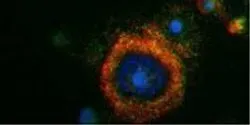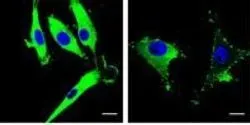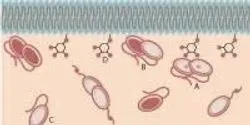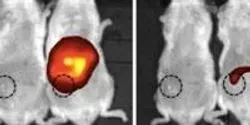Tumors

New research, led by University of Southampton biological scientist Dr Hannah Siddle, is aiming to develop an effective vaccine against an infectious cancer that is eradicating the Tasmanian devil, the world’s largest remaining marsupial carnivore.

Lung cancers attract circulating immune cells to the tumor mass, where the cancer reprograms them to support its growth and progression, researchers from Weill Cornell Medical College have found.

Researchers funded by the National Institute of Biomedical Imaging and Bioengineering have designed a nanoparticle transport system for gene delivery that destroys deadly brain gliomas in a rat model, significantly extending the lives of the treated animals. The nanoparticles are filled with genes for an enzyme that converts a prodrug called ganciclovir into a potent destroyer of the glioma cells.

A Florida State University scientist is part of a team of researchers that has developed a non-invasive way to "light up" animal cells, a development that could significantly advance cell-based therapies and pave the way for more effective cancer research in the long run.














